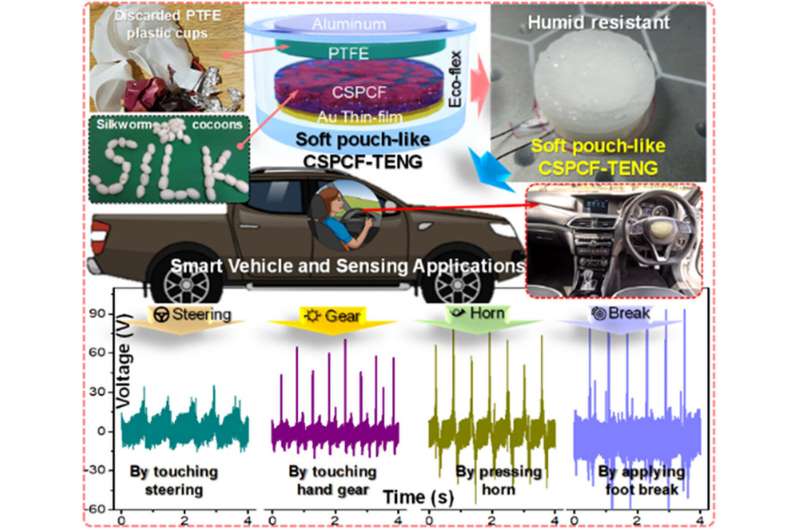
Triboelectric nanogenerators
(TENGs) are an emerging technology that harvests the freely available
mechanical energy from daily human activities.
In a study published by Nano Energy, engineers from the University of Surrey reveal how they used recycled plastic cups and silk cocoon waste to develop a soft and skin-friendly self-powered sensor, which can be used to sense human activities.
When coupled with an AI system and applied in a car setting, the smart sensor could flag potentially dangerous driving trends, including slow brake reaction times. The highly flexible and biocompatible sensor could either be used as a wearable item on clothing or placed within the fabric of the steering wheel, horn, gear stick and brake pedal.
In tests, it provided real-time feedback on the driver's actions, which allowed the AI system to compute performance.
Dr. Bhaskar Dudem, principal author of the study and Research Fellow at the University of Surrey's Advanced Technology Institute, said: "We are all excited by how AI will influence future consumer electronics, but this future must also be friendly to our planet's environment. Our recycled silk-based smart sensor technology is a hint of what the future holds and, with support from industry, we believe we can soon bring it to market."
Professor Ravi Silva, director of the ATI and corresponding author, said: "Whilst in this example we tested our sensors to monitor driver behavior, we believe the ideal application of the self-powered smart sensor technology is in future driverless cars and other Industry 4.0 automation systems. This eco-friendly cutting-edge project with international collaborators inspires us at the Advanced Technology Institute to keep inventing solutions to real-world problems faced by society."

 Previous page
Previous page Back to top
Back to top







